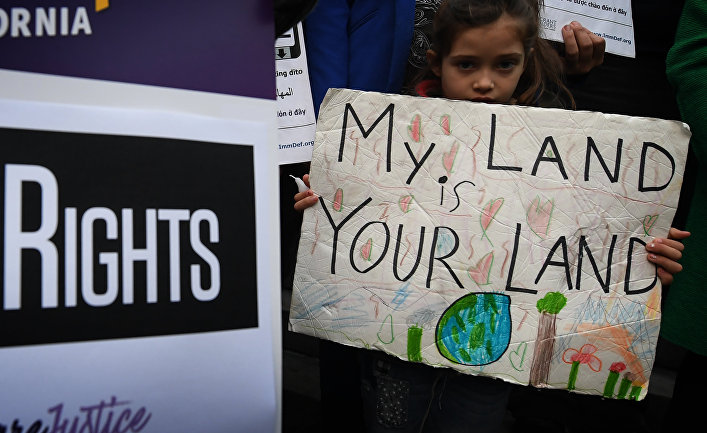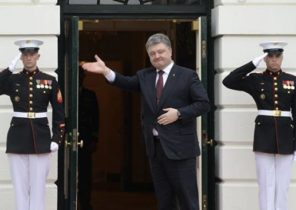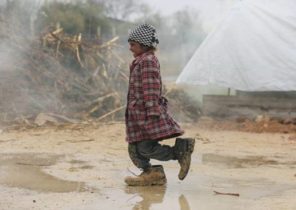
Immigration decree of the President of Donald trump has been so clumsy, stressed unfriendly and badly designed that it hid a very inconvenient truth from the eyes of all those who were against it: the US denied many Muslims entry into their territory before the arrival of trump to power.
In your statement that trump spoke out on Sunday evening, January 29, he noted that the selected seven countries — Iran, Iraq, Syria, Libya, Somalia, Sudan and Yemen to match the list of countries contained in the Act on the improvement of the visa waiver program and the prevention of travel of persons linked to terrorism, which was adopted under President Barack Obama. This law, which was not a full ban — one that didn’t put owners grinkart and double citizenship in a very difficult situation on the border, demanded that the inhabitants of these countries having dual citizenship, and all those who attended, received a visa to enter the United States. However, the truth is that these countries were officially identified as potentially dangerous under President Obama, and not at the trump.
Trump criticized for the fact that it is not included in this list of other countries, despite the fact that they, too, are a threat to the United States. For example, Saudi Arabia, whose citizens have committed terrorist acts of 11 September, or Tunisia, which in calculation per capita supplies to Islamic state (a terrorist organization banned in Russia — approx. ed.) more fighters than any other country in the world. However, this practice also existed before the arrival of trump to power. Look at the statistics of failures in the issuance of visitor’s visa. In 2016, the US refused to issue a visitor visa B only 4% of Saudi nationals, while the average for all other countries fall under the visa waiver program, the figure was 31.4 percent. For Tunisia, the failure rate was 16%.
However, overall the statistics of issuing visas for entry into the United States — excluding countries included in the visa waiver program — indicates some bias towards Muslim countries.
Probably, in many ways, this bias against the Muslims due to the comparative poverty of Muslim countries. In the end, when it comes to the rich States of the Persian Gulf, the percentage of refusals of visas is negligible. However, there are a large number of poor countries in Africa and Asia, whose citizens greeted US with more joy than Muslims. The percentage of refusals of visas to citizens of Zimbabwe, East Timor or India remains well below average.
The European Schengen area in its visa policy also demonstrates a similar light bias against the Muslims, but the failure rate is much lower than in the US. As the data show in 2014, the average percentage of refusals in the issuance of Schengen visas to citizens of Muslim countries was 14%, and non-Muslim — 9%.
A fairly high percentage of refusals of visas to citizens of Muslim countries, the US remained more or less stable in the last 10 years, although for some countries this level is slightly fluctuated in both directions. Thus, when President George Bush citizens of Muslim countries were subjected to the same stringent checks as in the Obama administration.
In another part of the Executive order trump introduced a 120-day ban on the resettlement of refugees. But even before the arrival of trump to power Europe took the brunt of the global migration crisis. In 2016, the United States took 84 994 refugee. Only Germany — with a population of only a quarter of the U.S. population — has provided shelter to refugees 246 802.
In a sense, Europe is paying for its policy of greater openness: for the last time at the hands of terrorists in Europe have killed more people than in the US. However, this difference is too small to justify the huge difference in American and European policy in relation to displacement and refugees.
These differences arose long before trump. The scale of the disaster of 11 September may partly explain them, but whatever the reason, the United States is not such an open country, which supporters and opponents of the tramp she is. Those who protest against the decree trump may not even know what kind of reputation the US has earned among those travellers who want to get there. Extremely long waiting periods, the need to drive sometimes hundreds of miles to the Consulate for an interview to get a visa, fingerprinting — which you must once again take to the border — are the norm. Is the norm and refusal to issue visa, the causes of which are never explained: the US reserves the right to refuse any person, which they for some reason do not like, without explaining anything to anyone.
If the trip to the United States is a privilege and if the majority of people on the planet are perceived by employees of American consulates as delivering a lot of inconvenience to the petitioners, then, the decree trump, no matter how arrogant and nasty he was, is just another step along the way. Otherwise, in the face of sharp resistance from the courts, trump would try to fulfill their campaign promises more subtle way, more stringent requirements for applicants for visas and raising the percentage of failures in their results. Then maybe no one will even notice.







